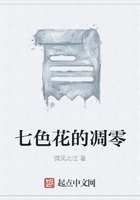Once, indeed, Harry, chasing a rebel and firing at him, saw him lurch in his saddle, and Chad, coming up, found the lad on the ground, crying over a canteen which the rebel had dropped. It was marked with the initials D. D., the strap was cut by the bullet Harry had fired, and not for a week of agonizing torture did Harry learn that the canteen, though Dan's, had been carried that day by another man.
It was on these scouts and skirmishes that the four--Harry and Chad, and Caleb Hazel and Yankee Jake Dillon, whose dog-like devotion to Chad soon became a regimental joke--became known, not only among their own men, but among their enemies, as the shrewdest and most daring scouts in the Federal service. Every Morgan's man came to know the name of Chad Buford; but it was not until Shiloh that Chad got his shoulder-straps, leading a charge under the very eye of General Grant. After Shiloh, the Fourth Ohio went back to its old quarters across the river, and no sooner were Chad and Harry there than Kentucky was put under the Department of the Ohio; and so it was also no queer turn of fate that now they were on their way to new head-quarters in Lexington.
Straight along the turnpike that ran between the Dean and the Buford farms, the Fourth Ohio went in a cloud of thick dust that rose and settled like a gray choking mist on the seared fields. Side by side rode Harry and Chad, and neither spoke when, on the left, the white columns of the Dean house came into view, and, on the right, the red brick of Chad's old home showed through the dusty leaves; not even when both saw on the Dean porch the figures of two women who, standing motionless, were looking at them. Harry's shoulders drooped, and he stared stonily ahead, while Chad turned his head quickly. The front door and shutters of the Buford house were closed, and there were few signs of life about the place. Only at the gate was the slouching figure of Jerome Conners, the overseer, who, waving his hat at the column, recognized Chad, as he rode by, and spoke to him, Chad thought, with a covert sneer.
Farther ahead, and on the farthest boundary of the Buford farm, was a Federal fort, now deserted, and the beautiful woodland that had once stood in perfect beauty around it was sadly ravaged and nearly gone, as was the Dean woodland across the road. It was plain that some people were paying the Yankee piper for the death-dance in which a mighty nation was shaking its feet.
On they went, past the old college, down Broadway, wheeling at Second Street--Harry going on with the regiment to camp on the other edge of the town; Chad reporting with his colonel at General Ward's head-quarters, a columned brick house on one corner of the college campus, and straight across from the Hunt home, where he had first danced with Margaret Dean.
That night the two lay on the edge of the Ashland woods, looking up at the stars, the ripened bluegrass--a yellow, moonlit sea--around them and the woods dark and still behind them. Both smoked and were silent, but each knew that to the other his thoughts were known; for both had been on the same errand that day, and the miserable tale of the last ten months both had learned.
Trouble had soon begun for the ones who were dear to them, when both left for the war. At once General Anderson had promised immunity from arrest to every peaceable citizen in the State, but at once the shiftless, the prowling, the lawless, gathered to the Home Guards for self-protection, to mask deviltry and to wreak vengeance for private wrongs. At once mischief began. Along the Ohio, men with Southern sympathies were clapped into prison. Citizens who had joined the Confederates were pronounced guilty of treason, and Breckinridge was expelled from the Senate as a traitor. Morgan's great raid in June, '61, spread consternation through the land and, straightway, every district and county were at the mercy of a petty local provost. No man of Southern sympathies could stand for office. Courts in session were broken up with the bayonet. Civil authority was overthrown. Destruction of property, indemnity assessments on innocent men, arrests, imprisonment, and murder became of daily occurrence. Ministers were jailed and lately prisons had even been prepared for disloyal women. Major Buford, forced to stay at home on account of his rheumatism and the serious illness of Miss Lucy, had been sent to prison once and was now under arrest again. General Dean, old as he was, had escaped and had gone to Virginia to fight with Lee; and Margaret and Mrs. Dean, with a few servants, were out on the farm alone.
But neither spoke of the worst that both feared was yet to come--and "Taps"sounded soft and dear on the night air.















